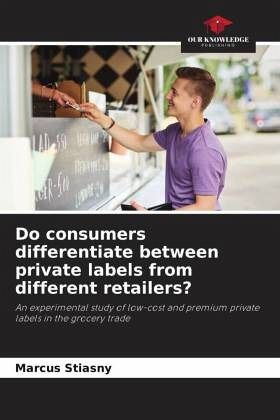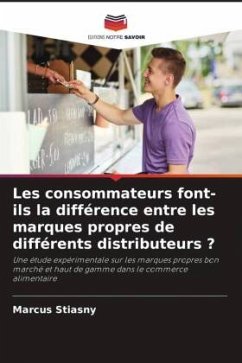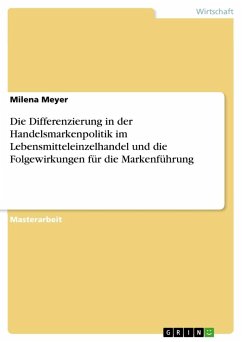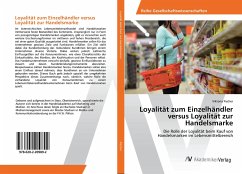
Do consumers differentiate between private labels from different retailers?
An experimental study of low-cost and premium private labels in the grocery trade
Versandkostenfrei!
Versandfertig in 6-10 Tagen
40,99 €
inkl. MwSt.

PAYBACK Punkte
20 °P sammeln!
Private labels are now very successful in Europe. Some retailers carry them in three quality levels: Budget, Standard and Premium. However, due to similar positioning, consumers often do not distinguish between private labels from different retailers. Unlike manufacturer brands, these are often affected by a deficit in their perceived quality, given their original image as low-cost brands.While product sampling has already been shown to be an effective measure to increase the perceived quality of standard private labels, a study showed that consumers transfer their experiences with one private...
Private labels are now very successful in Europe. Some retailers carry them in three quality levels: Budget, Standard and Premium. However, due to similar positioning, consumers often do not distinguish between private labels from different retailers. Unlike manufacturer brands, these are often affected by a deficit in their perceived quality, given their original image as low-cost brands.While product sampling has already been shown to be an effective measure to increase the perceived quality of standard private labels, a study showed that consumers transfer their experiences with one private label to other private labels. In the context of this master thesis, the findings on the effectiveness of product sampling, as well as on transfer effects between competing private labels, should be extended to budget and premium private labels.












